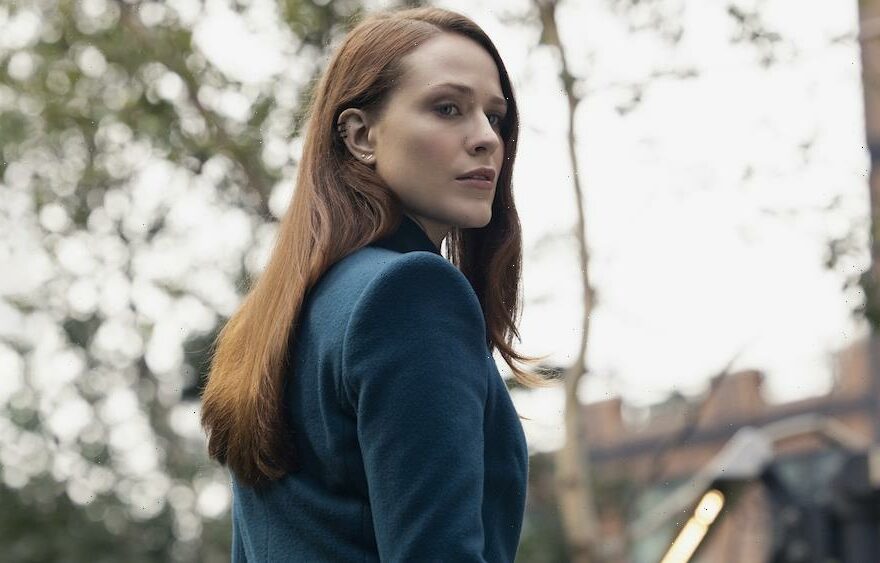SPOILER ALERT: This review contains spoilers for the Season 4 finale of “Westworld,” entitled “Que Será, Será,” now streaming on HBO Max.
Reviewing the first four episodes of “Westworld’s” fourth season, I noted that the show seemed unnecessarily convoluted, purposefully obscuring what was even happening until the season’s fourth episode. With the back half of “Westworld’s” season having now aired — the finale dropped August 14 — that convolution seems to have served a purpose. The show spent half its 2022 episodes avoiding getting to the point because, once there, there wasn’t that much to say.
The reveal at midseason was that the android Charlotte Hale (Tessa Thompson) had come up with a way to control humanity, and that all the people in her New York City were performing for her and her kind’s amusement. It was a neat reversal of the show’s original premise, wherein robots acted out loops made for them by people, and it also pushed on one of the show’s core questions: When left to their own devices, would robots invented by humans not just act in the ways humans do? In other words, can entities modeled on their creator ever really break free?
It was a novel and promising idea, and once we were settled into a reality whose basic facts I understood, I looked forward to seeing it develop. And there were genuinely intriguing moments, with a sequence in which Hale commanded a mindless human to play piano for her until his fingers bled suggesting the haunting heights to which “Westworld” creators Lisa Joy and Jonathan Nolan’s imagination can be put. And yet their heavy hands kept characters within their own restrictive loops. At its best, in its first two seasons, “Westworld’s” treatment of its characters as broad allegorical types worked towards a story that felt pulsing with an enigmatic truth that lay just out of reach. Sure, everyone on screen was a piece on a gameboard, but the game itself had a mesmerizing rhythm. The second half of this season, by contrast, gave way to a methodical wiping-out of various characters, in a charmless and frankly ugly total war that bore on past the end of viewer interest.
This bloodbath was triggered by Ed Harris’ Man in Black character, in an extension of his series-long nihilism; his viewpoint couldn’t help becoming the show’s. No critique of our salacious desire for violence could be made credibly by a show whose most recent hour was mainly characters whacking each other with hatchets. Sure, the show is stating that both humankind and the toys we create are inexorably drawn to violence, and the desire to dominate has always been a part of the set of issues “Westworld” addresses. But here, it felt less like a subject on the mind of Joy and Nolan than an erasing of whatever nuance had come before. And it swamped the dawning consciousness of this season’s iteration of the Dolores character, that her existence in New York was a myth she’d created to talk through her understanding of herself; the would-be soaring moment of Dolores’ return to Westworld at season’s end felt less like a declaration of intent than an attempt, at the end of a bacchanalia of murder, to reclaim past glories.
“Westworld,” like “Game of Thrones” — the genre series success of which one suspects HBO had hoped its robot serial could approach — has dark matter in its DNA. It is concerned with very rough stuff. And yet never before Season 4 did its deployment of violence seem quite so cynical. There was, at the heart of characters like Dolores and Maeve (Thandiwe Newton, badly underused this season), a questing and anxious curiosity about what it means to be alive in times of seismic change. Living through annihilation, on the other hand, is certainly a bad vibe, but doesn’t give the viewer much to hang onto.
The end of Season 4 seems to point toward a final showdown between Dolores and the world that made her; part of me hopes she gets that chance, and that the show gets the opportunity to do right by the world it created at first. Westworld, the park, was the scene of fascinating drama. By contrast, the area outside seemed to stymie Joy and Nolan, who have never quite got a bead on how to make the action of “Westworld” click outside the grounds. (Perhaps this accounts for why an eerie and uncannily lifeless New York City worked well at first.)
But it’s hard not to feel like this show has run out of ways to ask questions its creators are not that interested in answering. A season more into this story, we got four episodes that were effectively impossible to parse, and then four that built toward a random outburst of violent chaos that’s irrelevant, anyway, as many characters will likely just be rebuilt. I’ll always have a soft spot for this show: When Ramin Djawadi’s score kicked in as Dolores watched her memory of Teddy glimmer away, I felt something. But that moment just served to remind me how much of Season 4 I’d spent bemused by the show as a technical exercise, or outright bored by it. “Westworld” fans deserved better than the show’s fourth season. And should this be the end of the road, the series would be remembered as one with initial promise that gradually fell away, and one that probably ended at the right time.
Read More About:
Source: Read Full Article
